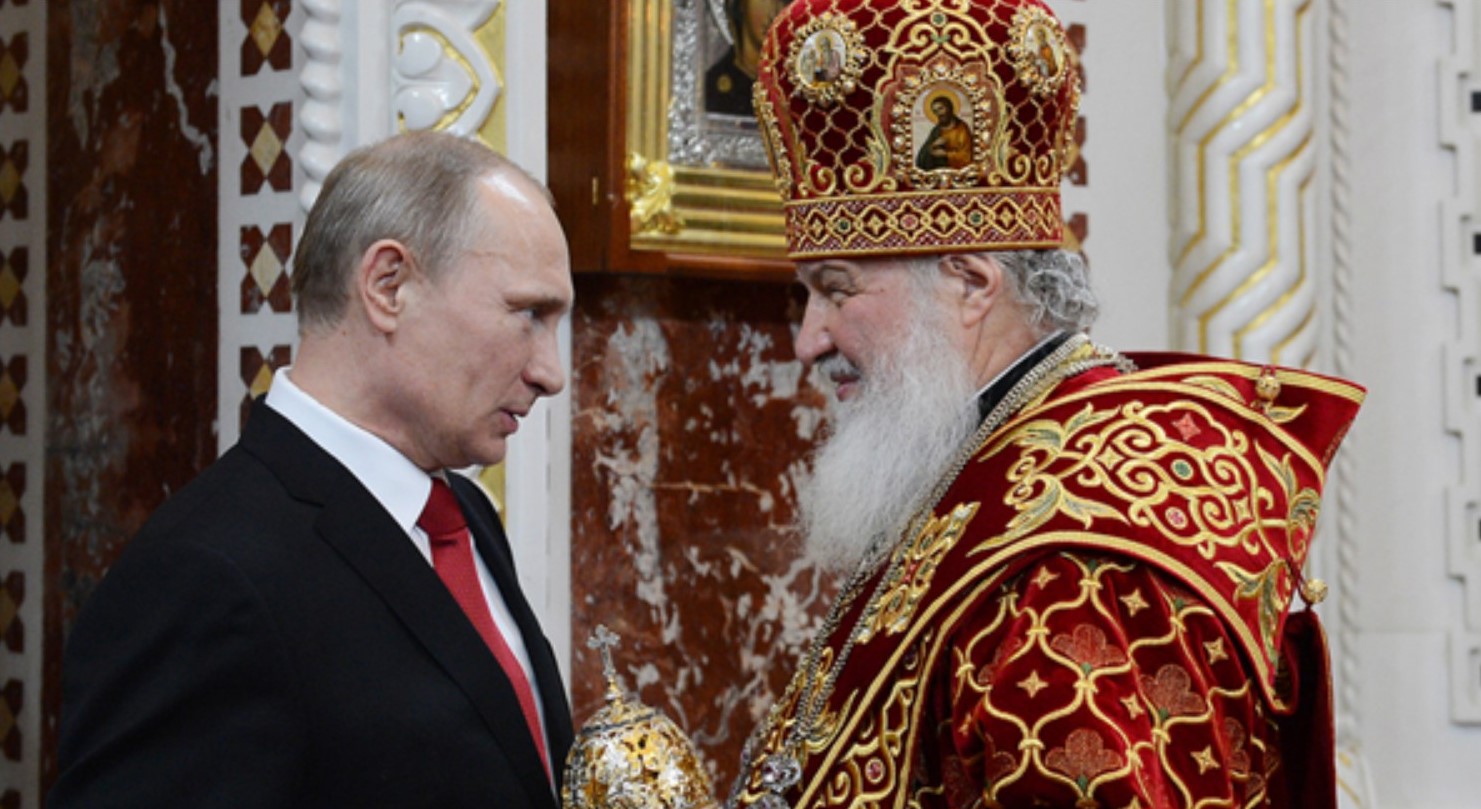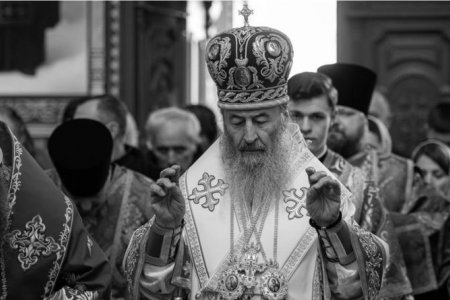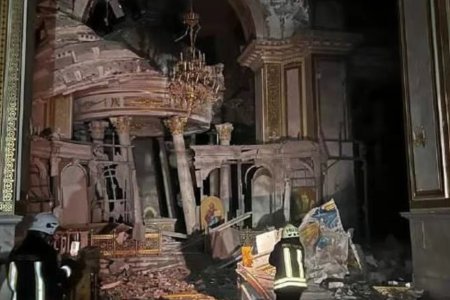
Ukraine’s Verkhovna Rada, by an overwhelming majority, has passed a bill which bans religious organizations with links to Russia as the aggressor state waging war against Ukraine. The bill has, seemingly, been significantly amended since its first reading, though some of the doubts expressed earlier may well remain. As human rights lawyer Volodymyr Yavorsky noted, even one lost case before the European Court of Human Rights would open floodgates if, by that stage, thousands of organizations had been affected.
Among the changes to Draft Bill No. 8371 since its first reading on 19 October 2023 was to its name. The bill adopted in its second (final) reading on 20 August is entitled ‘On the protection of the constitutional order with respect to the activities of religious organizations’ While this sounds very broad, it essentially concerns any religious organizations with links to the Russian Orthodox Church. In Ukraine, this was, and many believe remains, the Ukrainian Orthodox Church [UOC] which was, at least until Russia’s full-scale invasion of Ukraine, affiliated to the Moscow Patriarchate. UOC asserts that it broke its links with Moscow in the Spring of 2022, and the Church no longer has ‘MP’ after its title. Viktor Yelensky, Head of Ukraine’s State Service on Ethnic Policy and Freedom of Conscience, dismisses this, saying that the two churches are not canonically separated. The expert assessment prepared by his department found that UOC remains a structural division of the Russian Orthodox Church. The Head of UOC, Metropolitan Onufriy and over 20 other UOC priests, were found to have Russian citizenship. The information published by Ukrainska Pravda was dismissed by UOC as ‘false and manipulative’, yet Onufriy then acknowledged his Russian citizenship, claiming however that he had “left “ it after Russia’s full-scale invasion of Ukraine.
As reported, it was only the full-scale invasion that prompted any degree of a rift with the Russian Orthodox Church, despite clear links from 2014 between the Moscow Patriarchate and the occupation regimes in both Crimea and Russia’s proxy ‘Donetsk and Luhansk people’s republic’. If the Moscow patriarchate maintained some formal distance until 2022, this was totally dropped after 24 February 2022, with patriarch Kirill (Gundyaev) and his subordinates openly warmongering in support of Russia’s war of aggression, even claiming this to be a “sacred war” (see here and here).
Some of the amendments to the bill before its second reading appear to have concerned time frames. Once signed by Ukraine’s President Volodymyr Zelensky and officially published, the bill will come into force after 30 days.
An expert commission within the State Service on Ethnic Policy and Freedom of Conscience will check specific religious organizations who are believed to have links with or its control centre in Russian Orthodox Church. If such a tie, in its opinion, is confirmed, they will give the organization nine months to severe them. If they do not do so, the State Service will apply to the courts for a ban. All of this, counting time for appeal, etc., is likely to drag on for a long time, however there would eventually be a binding ruling. There could, furthermore, be a huge number of such rulings since, according to Ukrainian legislation, it is not the Church itself which constitutes a legal entity, but specific congregations, monasteries, seminaries, etc. This is why any negative judgement from the European Court of Human Rights could end up multiplying.
In speaking about the new bill to Suspilne, Viktor Yelensky said that the best solution would be for the Ukrainian Orthodox Church to fully sever all ties with the Moscow patriarchate itself. This, however, may well be the first problem since UOC has been claiming, since the Spring of 2022, that it has done so, that it changed its charter at that time. Would an individual congregation be deemed to have links with the Moscow patriarchate purely because this alleged rift is in dispute, or because of the individual congregation’s own activities?
Back in October 2023, Dmytro Vovk, Head of the Research Centre on Rule of Law and Religion, gave an interview to KHPG, in which he called the proposed ban disproportionate, and warned that it would create, rather than eliminate problems. He has clearly not been convinced by any assessments, judging by the damning assessment he has given under the title ‘Constitutional and legal aspects of the law ‘on the banning of UOC’
Is this a law on the banning of the Russian Orthodox Church or the Ukrainian Orthodox Church [UOC] which is historically and canonically linked with the Moscow patriarchate? The question is essentially rhetorical since the bill’s authors and promoters have repeatedly made it clear that this is aimed at banning UOC. Volk asserts that the state-appointed Expert Commission has essentially found that nothing except a declaration of autocephalic status, will indicate a rift to the affiliation of UOC congregations to the Russian Orthodox Church. In fact, he believes, the situation is even worse as that autocephalic status would have to be recognized by the church in Russia. Volk is a legal specialist, not a theologist, and the last assertion seems rather contentious. After all both the Kremlin and the Moscow patriarchate reacted extremely aggressively to the granting of autocephalic status to the Orthodox Church of Ukraine, yet nobody has suggested that the latter needed Kirill’s stamp of approval.
Vovk writes of eight thousand affected religious organizations but refutes the suggestion that a ban on all of these will take many years. If all that is needed is for the prosecutor in each case to cite the religious ‘expert assessment’ that found that UOC remained structurally linked to the Russian Orthodox Church, the process could be quick.
Any law must be foreseeable, so that citizens know what is legal, and what could incur sanctions. Vovk asserts that the law just adopt fails this test, not least because no guarantees are provided for the objectivity and independence of the expert assessment regarding affiliation of UOC with the Russian Orthodox Church.
Vovk does not consider that the law fully complies with international human rights norms and cites Articles 18 and 22 of the International Covenant on Civil and Political Rights. Article 22 does not allow restrictions on freedom of association unless these “are necessary in a democratic society in the interests of national security or public safety, public order, the protection of public health or morals or the protection of the rights and freedoms of others.” Such a ban cannot be based purely on religious affiliation; there must be proof of the religious organization’s institutional link to unlawful activities.
Draft bill No. 8371 was not just supported by a huge majority (261) of MPs. In a survey carried out last year by the Kyiv International Institute of Sociology, 66% of respondents believed that UOC (identified in the question as subordinate to the Moscow patriarchate) should be banned.
While there is no excuse for the warmongering support for Russian aggression shown by Kirill and, at least, the leadership of the Russian Orthodox Church, the situation within individual congregations of the Ukrainian Orthodox Church is not straightforward. UOC priest Kostiantyn Maksymov from occupied Tokmak (Zaporizhzhia oblast) was recently sentenced to 14 years’ imprisonment by a Russian occupation ‘court’ after being abducted by the invaders and held incommunicado for ten months. It is likely that the reason was Father Kostiantyn’s refusal to sanction the forced transfer of the Berdiansk Diocese to the Russian Orthodox Church. Father Volodymyr Saviyskiy, who knew Father Kostiantyn, had also faced harassment, interrogations and detention for his opposition to such a merger with the Russian Orthodox Church; his refusal to stop praying for Ukraine and its defenders and unwillingness to report on members of his congregation.



